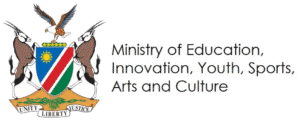The role of language ideologies in the development of indigenous languages in Namibia
Keywords:
language ideology, standard language, non-standard language, standardization, hybrid language, codeswitching, translanguagingAbstract
This paper examines discursive language practices, more particularly among the youth, in the Kavango Region. The initial motivation for this study was data from the Kavango Region that suggests that traditional linguistic boundaries between indigenous African languages (IALs) have been re-negotiated to express expanded views of the self. The study shows that expansion of linguistic codes is enhanced by common substrate systems in the three major Kavango languages, using lexical borrowings, semantic shifts and morphological derivations from Afrikaans, English and German as source languages. Using a translanguaging framework, hybrid language practices challenge traditional conceptualizations of language. That is to say, hybrid language practices reflect heteroglossic speech where rules and norms overlap traditional language boundaries. Likewise, the current study explores how the multilingual youth in the Kavango Region challenge the monolingual discourse practices in pursuit of voice and agency when they engage in their everyday way of speaking. The paper reports on data predominantly collected from the „Rukavango Service‟ (radio) call-in programme commonly known as „Mudukuli‟ or „Mutuyuri‟, and general discussions and conversations on Wato FM. The initial data for the current study were collected as part of my PhD data collection. Additionally, data for the study were also collected through discussions with some laypersons, educators in the Kavango Region, fellow post-graduate students at the University of the Western Cape (UWC), and colleagues at the National Institute for Educational Development (NIED). Furthermore, the study calls for more studies on this language development from translanguaging, migration and settlement angles in order to draw comprehensive accounts of hybrid language use in Namibia‟s towns and cities, and comparable situations. Moreover, the study highlights the implications for language planning and policy in Namibia. Last but not least, implications for future research based on the study‟s findings are also highlighted.
Downloads
Published
How to Cite
Issue
Section
License
Copyright (c) 2020 MoEAC, National Institute for Educational Development (NIED)

This work is licensed under a Creative Commons Attribution 4.0 International License.






